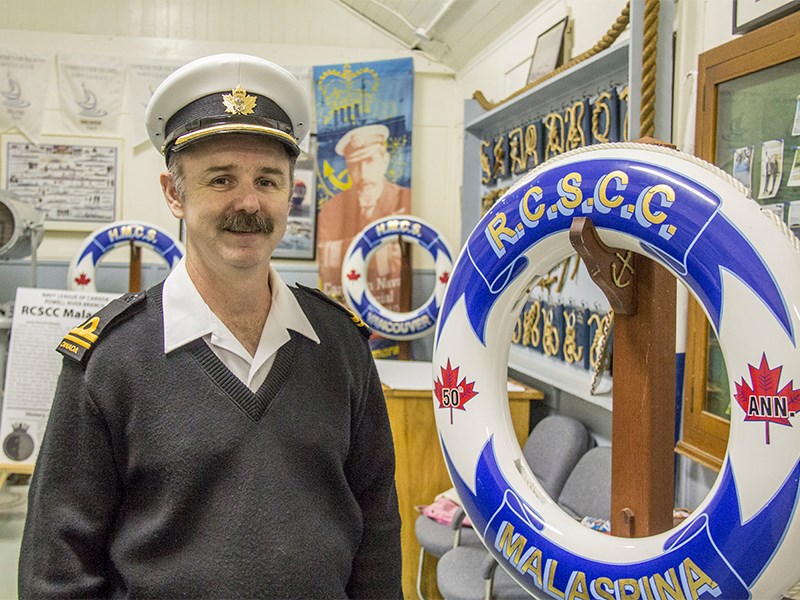As every previous commanding officer (CO) has before, incoming Royal Canadian Sea Cadets Corps (RCSCC) Malaspina CO Ken Stewart will be responsible for everything involved with running RCSCC in Powell River.
According to outgoing CO Glen McCallum, Stewart will take charge of the unit, top to bottom, that includes 26 cadets aged 13 to 18.
“He is the boss,” said McCallum, who will hand over command to Stewart on Saturday, November 26.
RCSCC Malaspina is organized as a regular ship’s company. Stewart will teach, develop lesson plans, engage cadets and also do threat analysis, looking for what could go wrong.
The corps’ biggest concern is the cadets’ safety, said McCallum, who was the CO for several years.
“I don’t know any officer who wouldn’t throw himself under a bus for a kid to stop them from getting hurt,” he added.
To that end, cadets are taught about social responsibilities, cultural influences, anti-drug use, anti-bullying and positive lifestyles.
Stewart joined sea cadets in 1979 when he was 13 years old under CO Cecil Morgan. He said the senior cadet at the time, Les Baloun, lived about four or five houses from where he grew up and talked to him about joining.
“It has taught me a sense of respect, discipline and to work as a crew, problem solving and leadership,” he said.
Like many cadet graduates of the corps, Stewart continued his involvement with the Royal Canadian Navy. After leaving the unit in 1984, he went straight into the naval reserve unit with HMCS Discovery in Vancouver. He also attended schooling, which is conducted at Albert Head Cadet Training Centre on Vancouver Island, to become a commissioned officer in the corps.
While in the sea cadets, Stewart learned what is expected of everyone who joins, including naval history, traditions, basic march, sailing and even shining his boots.
Sea cadet activities include sailing, sports, rifle range and safety, camping, survival, first aid, ship model making, geocaching, seamanship, citizenship, summer trade courses at national sea cadet camps and cruises aboard naval and Canadian Coast Guard vessels.
According to Stewart, it was expected that he would assume responsibility for the corps and eventually step into the CO position.
He said officers in the unit asked if he would be interested in joining them and, once becoming an officer, it was a matter of moving up in the ranks.
“The time in my life is right,” said Stewart. “You’re expected to progress through the line and now my time has come.”
According to McCallum, a large part of Stewart’s training is about youth and child development, how they learn and react to different situations.
The CO has to look out for the safety and welfare of all the staff, not only the cadets, as well as ensure funding is available to continue with the unit’s activities.
According to Stewart, it is the cadets and knowing how to teach and communicate with them that comes first.



